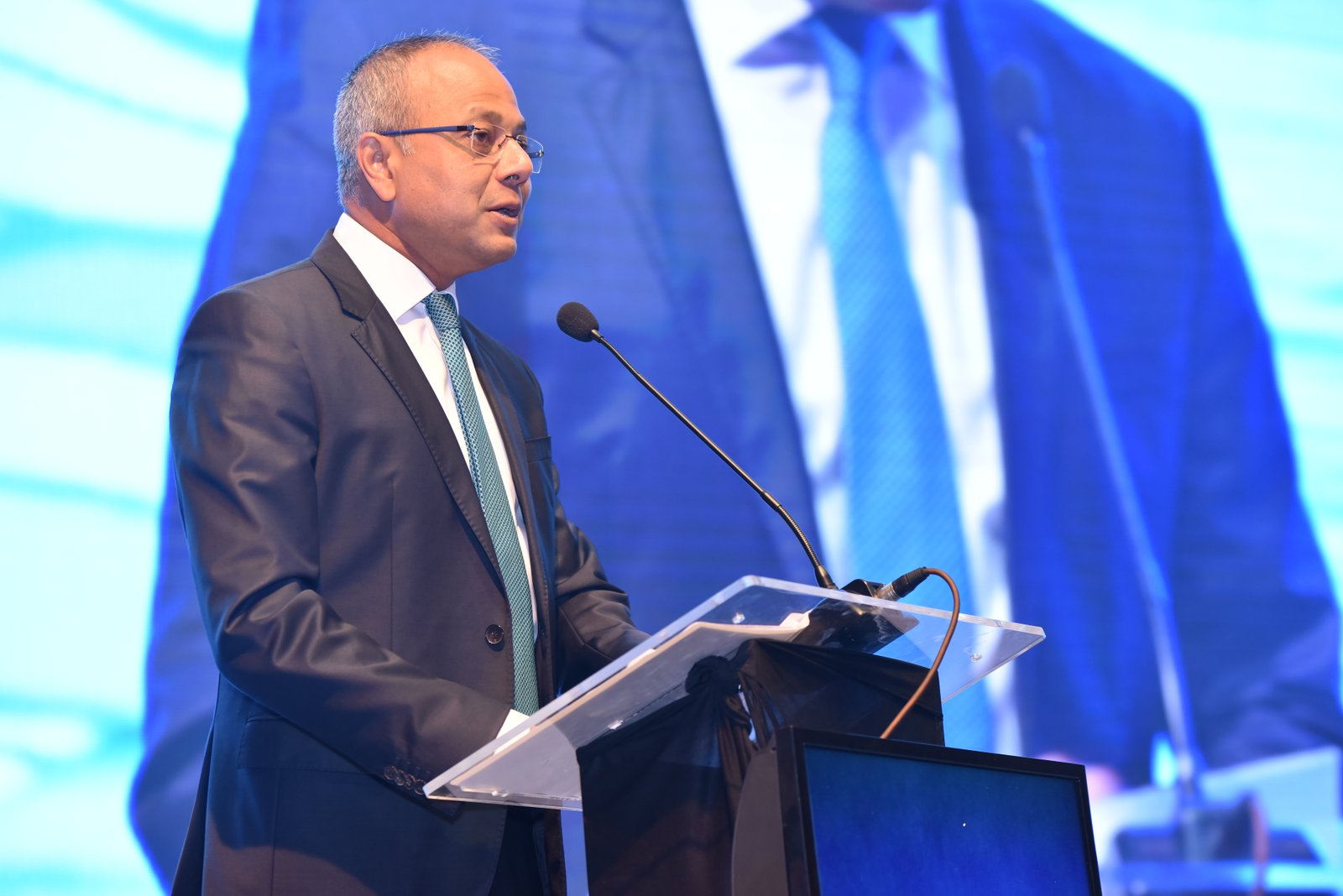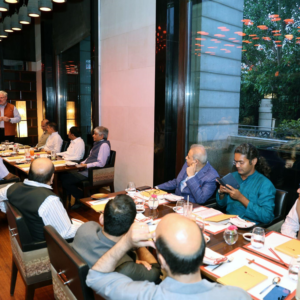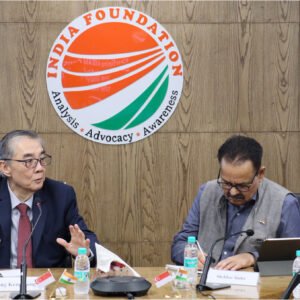Sri Lanka hosted the second edition of Indian Ocean Conference in Colombo in 2017. It
is excited to be on board with this initiative and the third edition and its theme of “building regional architectures”. The long-term objective of this initiative is to ensure oceanic good governance. The aim is to ensure the management of the world’s oceans and their resources in ways that keep our oceans healthy, productive, safe, secure and resilient, whilst strengthening connectivity and economic activity. In this context, the importance of building regional architectures to ensure oceanic good governance in the Indian Ocean region gains greater salience.
The end of the Cold War witnessed a shift in global attention to the IOR in strategic and political terms. The Indian Ocean region has become the hub of intense global activity over the last few decades underpinned by the growth of the Asian economies. The sea lanes in the Indian Ocean are considered among the most strategically important in the world with over 80% seaborne trade in oil transiting through Indian Ocean choke points. The most important trade routes of the world pass through this region. In particular we are witnessing the rise of maritime Asia due to the Strategic importance of the Indian Ocean.
Some important issues require collective reflection. Enhanced economic cooperation in the Indian Ocean region including amongst the diverse littoral economies in South Asia, South East Asia and Africa is essential for greater integration of the region. All economic indicators of the region have more than doubled during the past two decades. The region’s economic upturn is being driven by several factors including the revival of historic maritime links fueled by global value chain trade centered on East Asia, the rise of BRICs economies as growth poles in the world economy, increased investment in port infra- structure, consolidation in the shipping sector towards larger and more efficient ships, falling barriers to trade and investment, the growth of the middle class, and the winds of change in the sphere of technology.
With the right policies and with the correct perspective on oceanic ‘good governance’, the economies in the region are well placed to capitalise further on these changes and prosper. This should happen at global, regional and national levels which would facilitate economic convergence and prosperity in the Indian Ocean Region.
The Indian Ocean brings together peoples of three continents and constitutes a third of the world’s ocean space. The diversity and vastness of the Indian Ocean presents opportunities and challenges that the littoral states need to factor in so as to ensure peace and security of the region. These opportunities and challenges are multifaceted and require a regional architecture that addresses multiple issues both at a sub-regional level and at a wider Indian Ocean level. We need to consider a multi-layered approach that promotes and protects the core values of ocean governance and addresses key issues impacting our ocean in an effective manner.
Freedom of navigation in the Indian Ocean has to be strengthened because it is vital to world and regional trade and critical to global energy security. We strongly believe that the United Nations Convention on the Law of the Sea (UNCLOS) is the foundation for a stable rules-based regime at sea. Also, we note with concern the extent of sea blindness of coastal states. We, as a coastal state and an island, have limited visibility of our maritime surface picture. We rely extensively on transponder information such as AIS and VMS to map maritime activity around us, but the reality is that most dark vessels operate without activating transponder data. There is a need to develop maritime domain awareness (MDA technology) not only for our own national security interests but also for better regional cooperation to detect illicit activity at sea.
Many experts here on maritime affairs will acknowledge that jurisdictional limitations on the high seas offer criminal networks a safe haven for illicit trafficking activity. The Indian Ocean has become the largest route for trafficking Afghan heroin from the Makran coast to East Africa and South Asia. Sri Lanka hosted Home Ministers from Indian Ocean states including Shri Hansraj GangaramAhir, Ministers of State for Home Affairs in India, where it is resolved to establish the Southern Route Partnership (SRP) in October 2016. The Ministers agreed with the Colombo Declaration and pledged to develop a regional mechanism to counter drug trafficking in the Indian Ocean. The SRP with the support of the United Nations Office on Drug and Crime has become the primary mechanism to coordinate counter narcotics operations in the Indian Ocean region.
The SRP by itself would not do. Criminal activities transcend national maritime boundaries and impact on all coastal states. It is imperative that we improve the maritime law enforcement capacity of Indian Ocean states to counter all forms of maritime crime and ensure the long arm of the law can dispense “blue justice” across the Indian Ocean. Similarly, there are shared obligations for maritime search and rescue, and requirements for humanitarian assistance and disaster relief across the Indian Ocean. The case of Malaysian Airlines MH370 allegedly disappearing over the Indian Ocean is a wake-up call to all Indian Ocean states on the urgent need to review search and rescue capabilities over the Indian Ocean. Many small states have very large search and rescue areas of responsibility. We need to have a more integrated approach for search and rescue cooperation.
All Indian Ocean states need to commit more aggressively to achieving UN Sustainable Development Goal 14 – “Life below water”. The marine environment impacted by climate change, pollution, and oceanic resource exploitation needs to be monitored and safeguarded; it is indispensable to global environmental security and regional food security. We need to take a more serious approach to illegal, unreported and unregulated fishing, towards which Indian Ocean states have taken a lackluster approach driven by political imperatives. We as many other coastal states are facing the impacts of waste dumping in the Indian Ocean.
Regional Cooperation can make possible, stronger transport and trade connectivity not only through coordinated physical investments but also harmonisation of policies, rules, and procedures. Ultimately, an integrated Indian Ocean Region (IOR) market can emerge with economies of the scale necessary to compete in international markets.
The issues around the Indian Ocean are complex and require concerted efforts by littoral states to address the issues and take advantage of the opportunities that the ocean presents. At present there are multiple Indian Ocean organisations and forums, however in terms of achieving effective regional cooperation there is still a long way to go. Therefore, what is the most suitable regional architecture that will focus on key issues and also provide the necessary perspective of sub-regional dynamics that drives a coherent overall policy on ocean governance?
We may need to consider a multi-layered approach both in terms of division of thematic responsibilities and in terms of sub-regional interests, within an overarching Indian Ocean framework of shared values and principles. There is no perfect fit, on what regional architecture works best for such a vast ocean space. There are issues that can be addressed as a wider Indian Ocean community, and there are issues that can be dealt with more meaningfully at a thematic level or sub-regional level. It is about taking forward all these strands of activity within an architecture based on shared values and principles founded upon the UN Convention on the Law of the Sea.
It is high time for the littoral states, to be the masters of their own fate and the captains of their own ship. There should be increased coordination, participation and engagement by littoral states in determining how affairs are run in the Indian Ocean. Meaningful regional cooperation can help the 2030 Sustainable Development Goals. A single-minded focus on national strategies and actions has diverted attention from critical regional actions needed to promote energy, food, and water security-related SDGs; strengthen environmental sustainability, address climate change; and prevent natural disasters. Perhaps most importantly, regional cooperation can help build enough economic stakes in the region that promote peace and prosperity and substantially diminish the threat of aggression and war.
We must also be alert to competing global interest that can impact on the Indian Ocean. Recently, as the ice caps melt in the North Pole, a Maersk’s container vessel operated for the first time in an Arctic Route this summer from Murmansk in Russia (Near Norway) to Bering Strait near Alaska. If we are to achieve the full potential of the Indian Ocean it is imperative that we as Indian Ocean states maintain the comparative advantage in a shared approach.
Sri Lanka has a clear vision of what the country wants to be in the world today. It is repositioning itself to optimize its relationship with its neighbors and other partners, to leverage its geostrategic position and make it a hub of the Indian Ocean. To fully realise this potential, Sri Lanka is engaging in initiatives with regional players who have major economic stakes in the Indian Ocean. It is also pushing to further integrate with the world by undertaking reforms to facilitate trade and encourage productive foreign investments. Sri Lanka’s strategy is to leverage investments to boost its industries such as tourism, expand its manufacturing base, and safeguard its main exports: such as garments and tea. Accordingly, the Indian Ocean region plays a critical role in driving the global economy, and it will play an even more important role in the future.
The Indian Ocean is central to deciding our common global future. The shared nature of the Indian Ocean needs to be recognised and it is in our common interest to care, protect and develop this shared space for mutual benefit. Maintaining peace and security in the Indian Ocean is a prerequisite for the development and growth of the region. It is the collective responsibility of the countries in this region and beyond to ensure that the Indian Ocean is better managed, safe, productive and resilient – through ‘Oceanic good governance’.
(This article is a summary of the remarks made by Mr. SagalaRatnayaka,
Chief of Staff to the Prime Minister and Minister of Youth Affairs, Project Management and Southern Development, SriLanka, on 28th August, 2018 at the 3rd Indian Ocean Conference,
at Hanoi, Vietnam organised by India Foundation.)
(This article is carried in the print edition of January-February 2019 issue of India Foundation Journal.)




